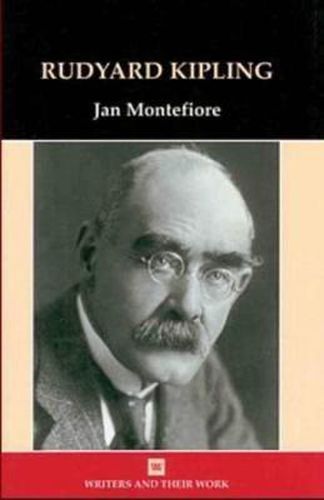Readings Newsletter
Become a Readings Member to make your shopping experience even easier.
Sign in or sign up for free!
You’re not far away from qualifying for FREE standard shipping within Australia
You’ve qualified for FREE standard shipping within Australia
The cart is loading…






This book argues that Kipling’s writings, at once Victorian conservative and modernist subversive, preaching imperialist control yet speaking for subaltern races and classes, are fissured yet energised by their own contradictions. Rudyard Kipling was a Victorian and an early modernist, a disciplinarian imperialist who sympathised with children and outlaws, a globe-trotter who mythologised ‘Old England’, and a world-famous author whom intellectuals despised. The central theme of this book is the way his work and its reception are both fissured and energised by these contradictions. This thorough study initially discusses Kipling’s ambivalent knowing attitude to unknownable otherness, his rhetorical imitations of Indian and demotic vernaculars, his work ethic and ideal of imperialist masculinity, thus contextualising the central discussion of his masterpiece Kim which, almost uniquely, takes Indian otherness as a source of pleasure not anxiety. Jan Montefiore describes Kipling as a writer on the cusp of modernity, examining how his fiction and poetry engaged with radio, cinema and air travel, how his poetry anticipated and influenced the subversive uncertainties of modernism, and how his post-war contributions to the literature of mourning undermined their own overt traditionalism. This work is aimed at: students of literature at A level and in higher education; teachers of literature; scholars valuing the extensive and up-to-date bibliography; and sixth-form, academic and public libraries. This is the only academic critique of Kipling’s work that discusses his relationship with modernism and the First World War. It is wide literary and thematic range within an approachable style. The study takes account of recent post-colonial theory, as well as issues of gender and identity. It is an excellent overview of Kipling’s work at an affordable price.
$9.00 standard shipping within Australia
FREE standard shipping within Australia for orders over $100.00
Express & International shipping calculated at checkout
This book argues that Kipling’s writings, at once Victorian conservative and modernist subversive, preaching imperialist control yet speaking for subaltern races and classes, are fissured yet energised by their own contradictions. Rudyard Kipling was a Victorian and an early modernist, a disciplinarian imperialist who sympathised with children and outlaws, a globe-trotter who mythologised ‘Old England’, and a world-famous author whom intellectuals despised. The central theme of this book is the way his work and its reception are both fissured and energised by these contradictions. This thorough study initially discusses Kipling’s ambivalent knowing attitude to unknownable otherness, his rhetorical imitations of Indian and demotic vernaculars, his work ethic and ideal of imperialist masculinity, thus contextualising the central discussion of his masterpiece Kim which, almost uniquely, takes Indian otherness as a source of pleasure not anxiety. Jan Montefiore describes Kipling as a writer on the cusp of modernity, examining how his fiction and poetry engaged with radio, cinema and air travel, how his poetry anticipated and influenced the subversive uncertainties of modernism, and how his post-war contributions to the literature of mourning undermined their own overt traditionalism. This work is aimed at: students of literature at A level and in higher education; teachers of literature; scholars valuing the extensive and up-to-date bibliography; and sixth-form, academic and public libraries. This is the only academic critique of Kipling’s work that discusses his relationship with modernism and the First World War. It is wide literary and thematic range within an approachable style. The study takes account of recent post-colonial theory, as well as issues of gender and identity. It is an excellent overview of Kipling’s work at an affordable price.